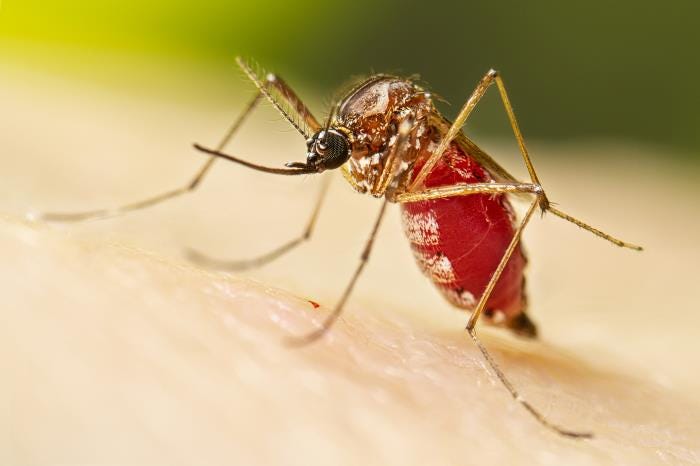Dengue in Florida: 7 additional locally acquired cases reported
New cases reported in Miami-Dade and Pasco counties
Health officials in Florida recorded seven additional locally acquired dengue fever cases during the past week—six in Miami-Dade County and one in Pasco County.
This brings the total autochthonous cases to 66 since the beginning of the year—Broward (2), Hillsborough (4), Manatee, Miami-Dade (40), Monroe (3), Orange (2), Palm Beach (3), Pasco (9), Polk, and Sarasota counties.
46 of the total 66 cases were serotyped as DENV-3, while the remaining 20 cases were either typed as DENV-1, DENV-4 or unknown.
In 2023, 186 locally transmitted cases were reported.
In addition, thirty-eight additional travel associated cases of dengue were reported this past week, putting the total to 758 this year.
Dengue infection is acquired through the bite of certain species of mosquitoes, primarily Aedes aegypti, but also Aedes albopictus, both of which are present in Florida.
California: 1st case of locally acquired dengue reported in San Bernardino County
Dengue fever can be a painful, debilitating disease but is rarely fatal. Symptoms appear 3-14 days after the bite of an infected mosquito and include sudden onset of fever, severe headache, eye pain, muscle and joint pain (giving the disease the nickname "breakbone fever"), and bleeding. Gastrointestinal symptoms like vomiting and diarrhea may also be present in some cases. Dengue fever symptoms usually lasts 4-7 days. The disease is often diagnosed incorrectly because the symptoms are similar to influenza and other viruses.
Dengue hemorrhagic fever is a rare but more severe form of dengue infection that can be fatal if not recognized and treated with supportive care. The primary risk factor for hemorrhagic fever is previous infection with a different dengue serotype (i.e. getting DENV-2 if you have already DENV-1 puts you at increased risk of hemorrhagic fever).
There is no treatment for dengue fever or dengue hemorrhagic fever, but quick recognition and management of symptoms and complications is effective at preventing deaths.
Subscribe to Outbreak News TV on YouTube
According to the CDC, Dengvaxia is the only dengue vaccine currently available in the United States.
Dengvaxia is recommended to prevent dengue in children aged 9–16 years, with laboratory-confirmed previous dengue virus infection and living in areas where dengue is common.
Dengue is common in the U.S. territories of American Samoa, Puerto Rico, and the U.S. Virgin Islands, and the freely associated states, including the Federated States of Micronesia, the Republic of Marshall Islands, and the Republic of Palau.





